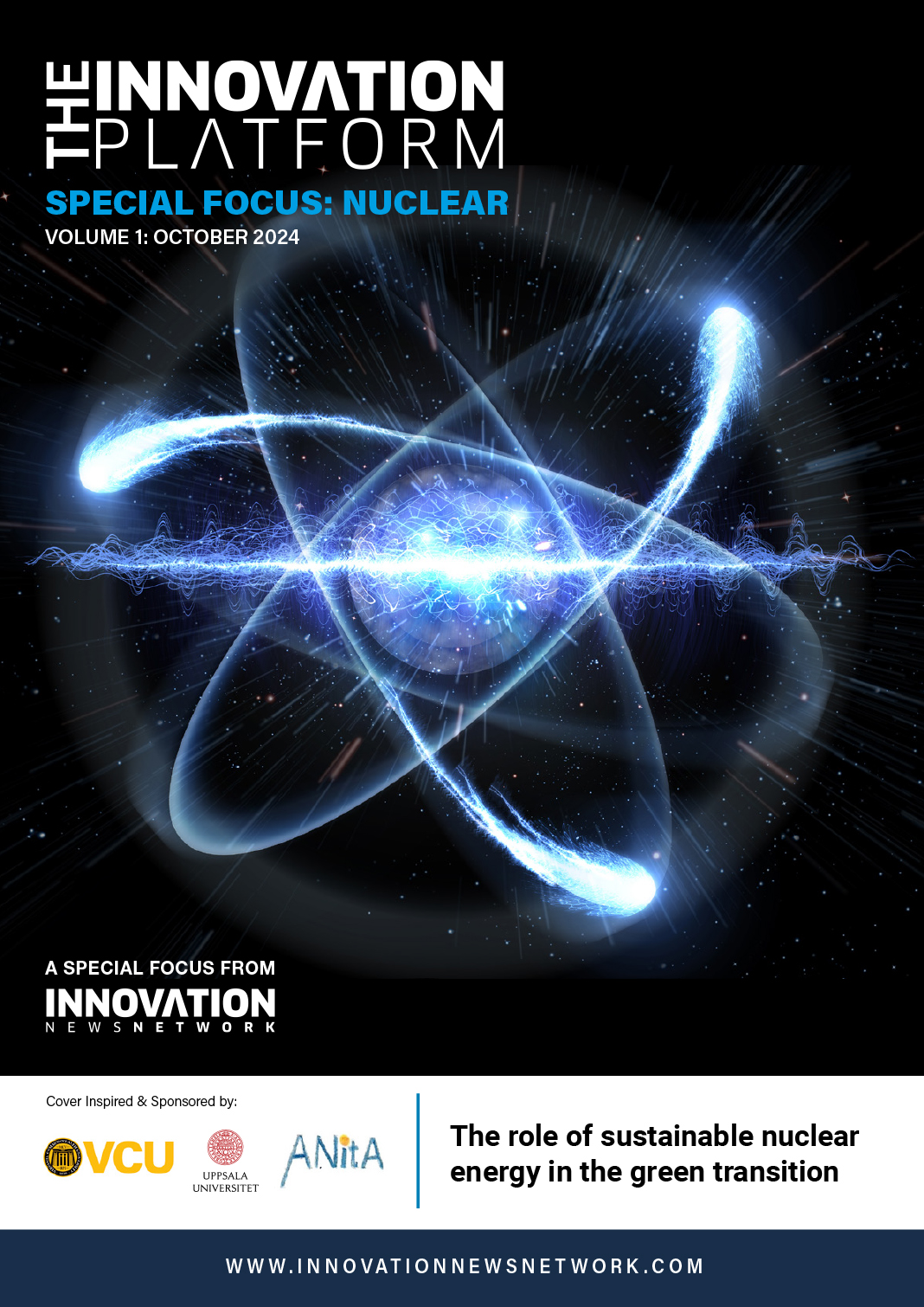This special focus publication deep dives into the role of sustainable nuclear energy as part of the energy transition.
Nuclear power is a low-carbon source of energy because, unlike coal, oil, or gas power plants, nuclear power plants practically do not produce CO2 during operation.
Nuclear reactors generate nearly one-third of the world’s carbon-free electricity and are crucial in meeting climate change goals.
In light of high global gas prices, we must ensure the world’s future energy supply is bolstered by reliable, affordable, low-carbon power. Nuclear is the answer to these problems.
The role of SMRs in nuclear power
The eBook kicks off by exploring the important role SMRs play alongside large nuclear as a low-carbon energy source to support a secure, affordable, decarbonised energy system.
In the article, the ANItA collaboration at Uppsala University details how small modular reactors are expected to change the perception of nuclear power for good.
Their relatively low output power makes SMRs less suitable for power generation on a national scale than full-scale reactors. However, their size and modular construction make them excellent for local or regional power generation, for example, producing electricity for larger communities and industrial complexes.
Many designs have the potential for a range of applications beyond low-carbon electricity generation, including the production of hydrogen, direct heat for industrial or domestic use or nuclear waste management.
The role of nuclear energy in achieving sustainable goals
Elsewhere in the eBook, Virginia Commonwealth University discusses the importance of nuclear energy in achieving environmental and climate goals.
Nuclear energy can help minimise the need for additional variable generation, energy storage, and transmission infrastructure, saving billions in capital expenditures.
Failing to utilise nuclear energy would actually increase radioactivity in the environment, as nuclear power prevents the unregulated, unmonitored release of radioactive materials from fossil fuel extraction and use. By choosing nuclear energy over fossil fuels, we can reduce our environmental footprint and create a cleaner, healthier world for future generations.
The European Nuclear Society builds on this importance by exploring the role of decarbonising the electricity sector through nuclear energy.
Electricity and heat contribute to around 44% of global emissions. However, nuclear electricity, with its stable, baseload, dispatchable profile, is particularly interesting for the provision of large amounts of electricity and support of electrification via large reactors as well as ensuring electricity access for specific locations, like remote communities or mining sites, via small or micro reactors.
Beyond that, nuclear reactors can serve multi-purpose uses – generating heat for district heating or industry, hydrogen, and potable water, in parallel with or without electricity production, presenting enhanced efficiency.
Streamlining processes to meet nuclear power expansion
The IAEA estimates that nuclear electrical generating capacity is projected to increase to 950 gigawatts by 2050.
Therefore, many countries with existing nuclear power programmes either have plans to, or are building, new power reactors.
In the final article, Tim Parkes and Karen Garesse detail how the Office for Nuclear Regulation is responding to the UK government’s challenge for all regulators to consider how processes can be streamlined to support effective and sustainable nuclear power expansion.
Following the launch of the government’s Civil Nuclear Roadmap in January 2024 as part of its energy security and net zero plans, ONR stands ready to regulate the country’s anticipated growing nuclear sector independently.
The UK has a widely respected regulatory system, and ONR has been preparing for the expansion of nuclear power for some time.
To maximise potential for this, ONR is continuing to innovate how it engages with vendors, developers, aspirant licensees and international regulators.
Altogether, the articles in this eBook detail how the world is shaping the future of sustainable nuclear energy.


